Musabih says that Dubai Customs are looking to put in place mechanisms aimed at making e-commerce more efficient, a statement that would have received a favourable reception at the Leaders in Logistics Summit, where delegates discussed at length the challenges of cross-border trade in the GCC.
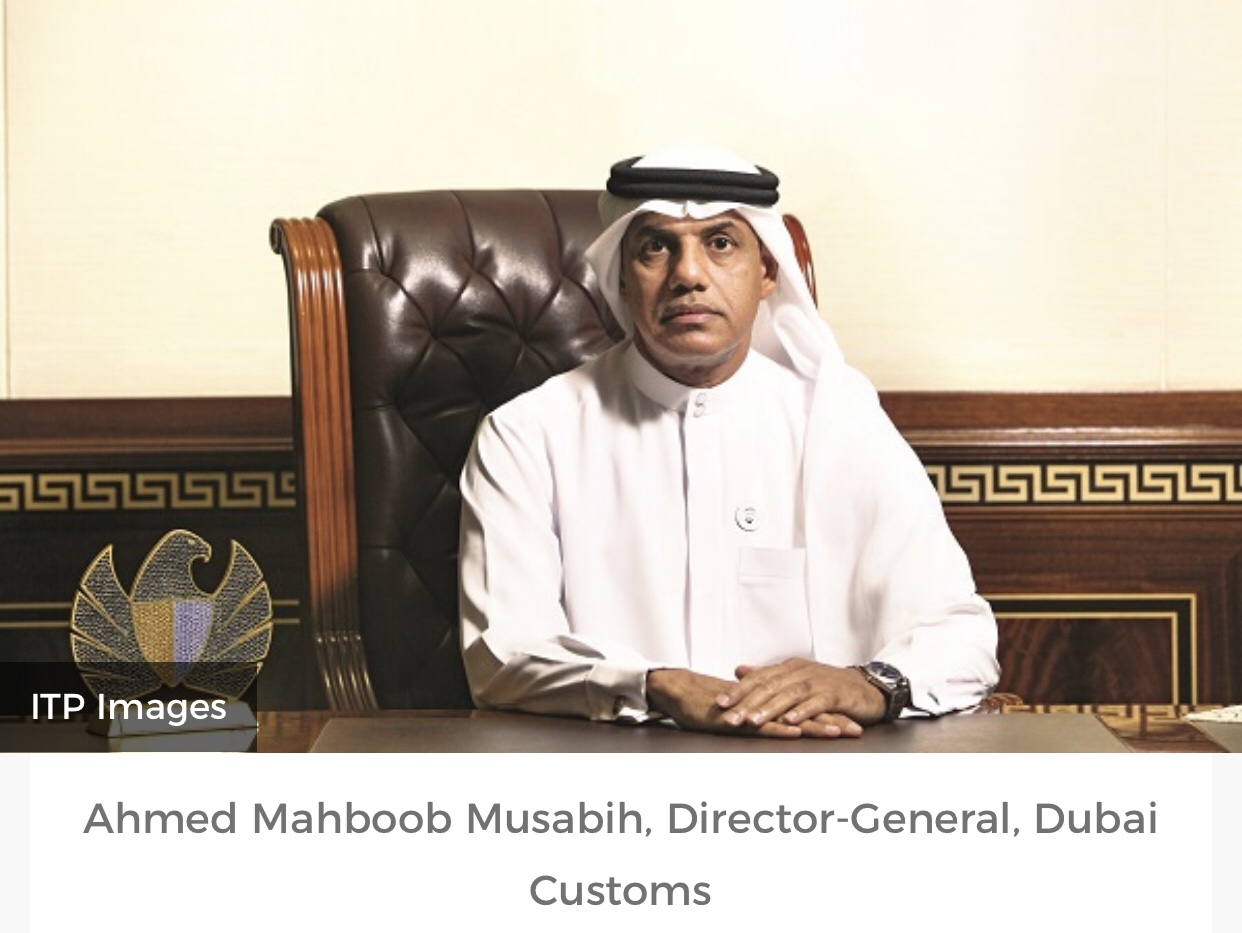
During a panel focused on last mile logistics, Rabih Allaf, growth director, at fetchr, pointed out that trade regulations such as those put in place by Dubai Customs, have made Dubai the e-com capital of the GCC.
“We work with sellers in the US, UK and China and for us we saw different models taken by different customers, but we see the vast majority of our clients establishing themselves in Dubai first because it has the best regulations, and then as they scale-up, they open warehouses in those tier one and tier two cities in Saudi Arabia and other countries in the region,” he said.
But that comment was followed up by Ulugbek Yuldashev, the founder and CEO of Dubai-based e-com platform AWOK.com, who said that GCC cross-border trade for UAE based retailers is problematic.
Cross-border is a major impediment, because as soon as you need to deliver cross border, you’re looking at two to three days
“Cross-border is a major impediment, because as soon as you need to deliver cross border, you’re looking at two to three days,” he said. “So if you really want to have same-day or nextday delivery in the region, you need regional DCs, and if you only have one or two hubs, you’re realistically looking at delivery times of five to ten days.”
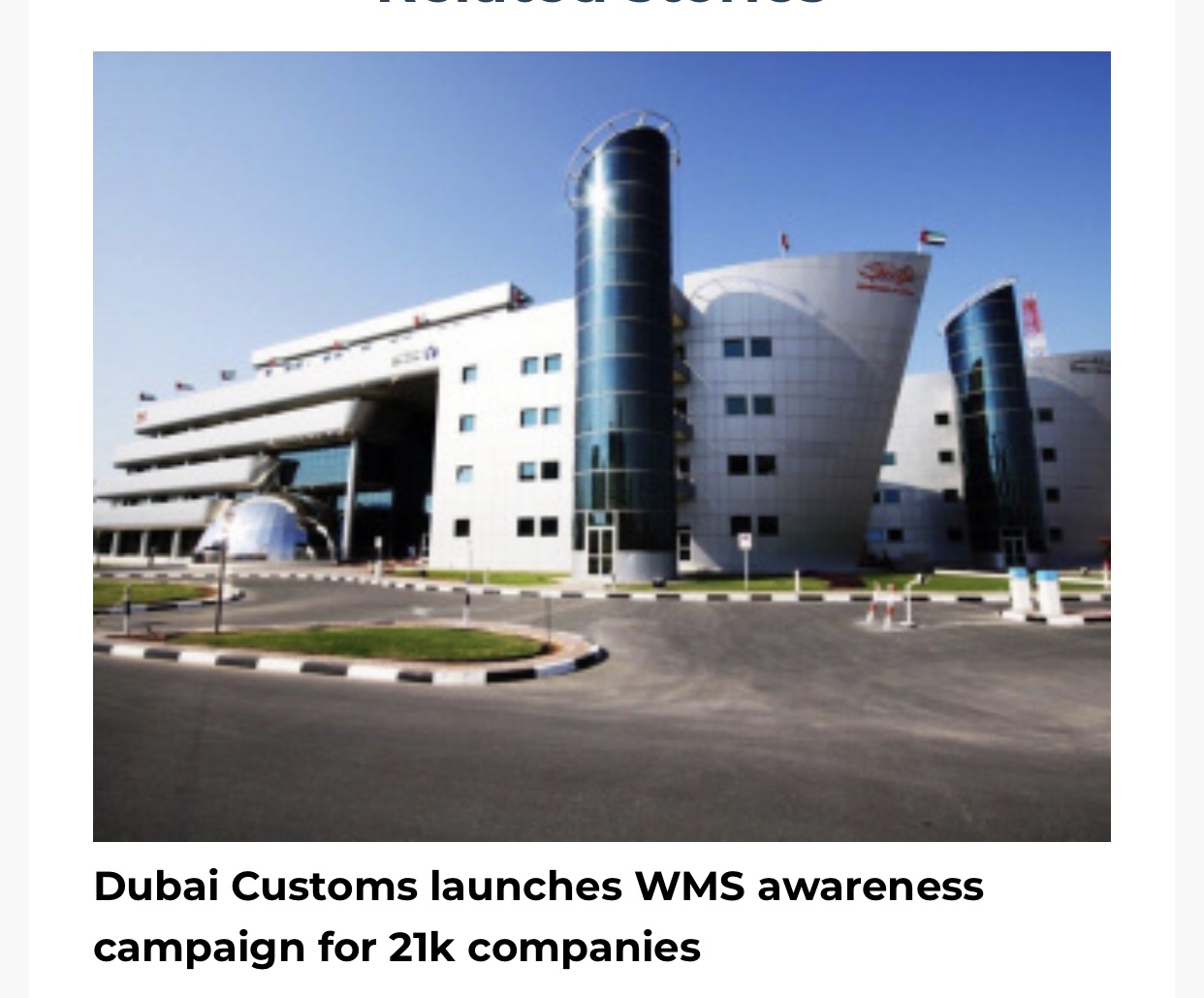
It was for reasons such as these that Dubai Customs, several years ago, began looking at ways to enhance trade processes in Dubai. “Dubai Customs has focused very closely on customer happiness, for this reason we are consistently ranked as the highest performing government department in terms of customer satisfaction,” he told Logistics Middle East.
“But, it’s an entire culture change and involves a number of projects that have been implemented over the last ten years or so.”
Key among the more recent initiatives are the Authorised Economic Operator program, and the TIR customs transit system, both of which are enhancing Dubai’s ability to do cross-border and transhipment trade much faster.
TIR is the only international Customs transit system that enables goods to be shipped from a country of origin, through transit countries, to a country of destination in sealed load compartments with limited intervention by Customs of intermediate transit countries along the supply chain.
This minimises administrative and financial burdens and Customs duties and taxes that are due will be covered by an international guarantee system. “It is the key to faster border crossings for trucks and containers, which means lower costs for transport and logistics companies and customs authorities.
It cuts border waiting times significantly, saving time and money,” explains Musabih. TIR also directly contributes to implementing key goals of the World Trade Organization’s Trade Facilitation Agreement (TFA) such as measures to enhance transparency, clearance of goods, freedom of transit and customs cooperation, and the publication and availability of information.
“It offers huge potential for improving transit connectivity between ports and borders with free zones and integrating them into the global logistics chain,” says Musabih.
Recently, the UAE celebrated the launch of the first intermodal export shipment under TIR, with a container leaving the SAIF Zone in Sharjah, bound for Olomouc in the Czech Republic via Jebel Ali Port in Dubai and the port of Hamburg, Germany.
The goods are travelling by land and sea under a single customs transit document (TIR Carnet) and a single guarantee. The system is being implemented in phases. The UAE joined the TIR convention in 2007. Then the country started the first phase of the TIR system’s implementation, which involved legislative changes to ensure proper implementation of the TIR system by all stakeholders in a way that guarantees the payment of customs duties and taxes, and makes border crossings faster, more secure and more efficient.
The next phase of TIR system implementation in the country will see the completion of the integration of IRU-IT risk management tools between the FCA and the local customs administrations
“The next phase of TIR system implementation in the country will see the completion of the integration of IRU-IT risk management tools between the FCA and the local customs administrations,” says Musabih. “The third phase will aim to complete the digital transformation across all customs and industry stakeholders to enable the full use of the electronic TIR (eTIR).”
The use of e-services and the general digitisation of processes at Dubai Customs has been a major focus, with the clearance window for 93% of trade transactions cut down to under two hours.
The Masala 2 system is a proprietary risk management and mitigation tool that is at the heart of Dubai Customs’ cargo clearance system.
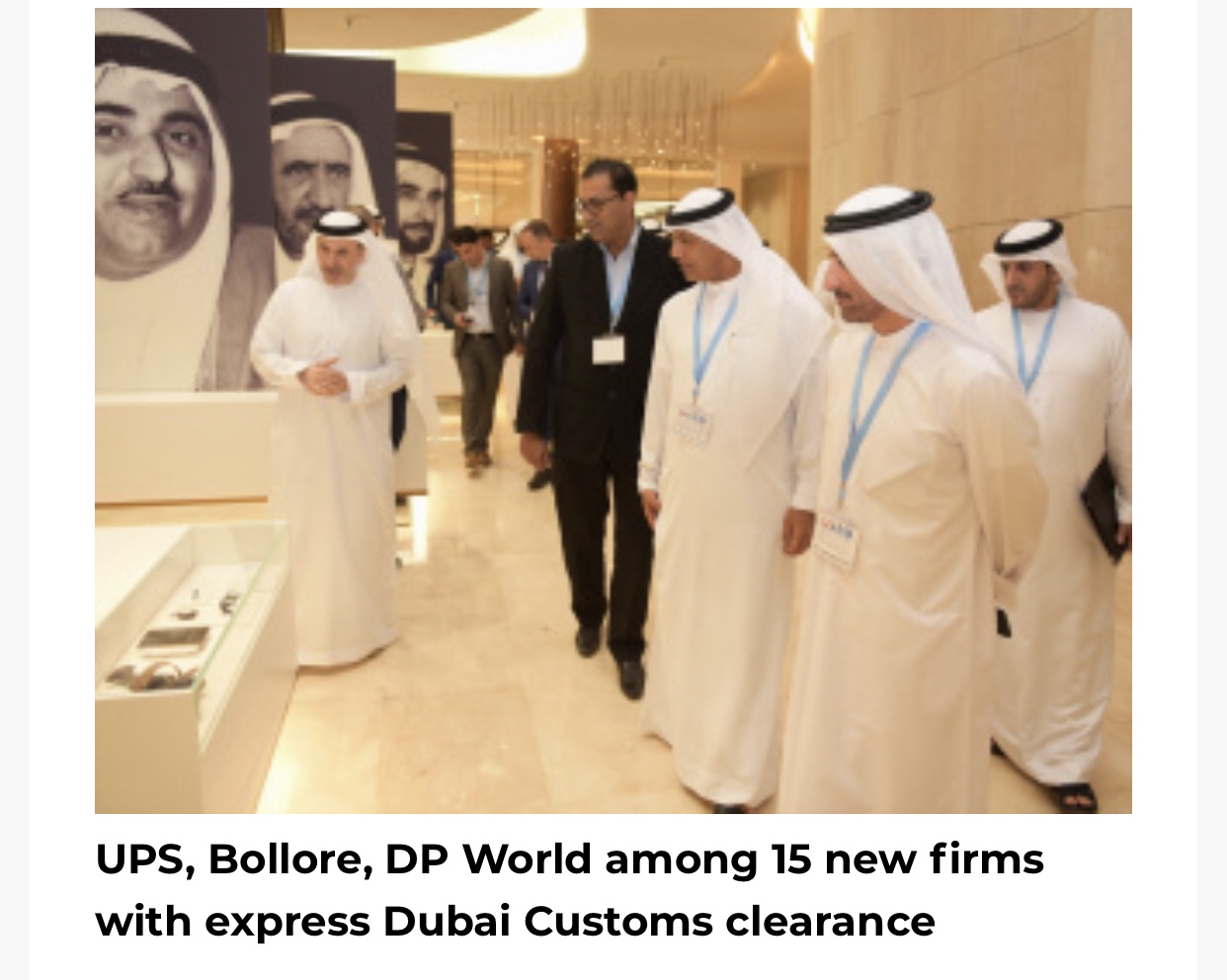
We have a two-hour window for cargo clearance
“We have a two-hour window for cargo clearance, however, some cargo clearance might take longer based on the risk assessment engine. But, we’re able to clear most of the cargo automatically without human intervention,” says Musabih.
This links into the Authorised Economic Operator (AEO) initiative, which Dubai Customs is using to speed up trade clearances between Dubai and the UAE’s key trade partners.
“The AEO program is one of the international standards under the World Customs Organisation where they support countries to have such a program locally, and once its approved they can give these benefits to exporters. So connected countries recognise traders in both territories and they share mutual benefits such as cheaper and faster customs clearance,” says Musabih.
“We’ve signed agreements to be an Authorised Economic Operator with South Korea, India and China. So within the next year we’ll recognise their exporters through the mutual agreement,” he adds. These efforts were a key aspect of Dubai’s successful bid to host the Expo 2020.
“We were part of the bid to host the Expo 2020 and there was a specific element to the bid talking about the processes and procedures for trade and how Dubai Customs can better facilitate trade and passenger movement,” explains Musabih.
“Based on our plans, we were also able to get approval from the World Customs Organisation to be the host of the Authorised Economic Operator Conference 2020.” It will be the first time a country from the Middle East will host the conference.
In 2018 Dubai Customs was named the best government entity supporting EXPO 2020 under the Dubai Government Excellence Program 2018. And in 2018 Dubai Customs’ initiatives helped the UAE rank first in the Arab World on the World Bank’s Logistics performance index: Efficiency of customs clearance process.
On a sliding scale, with 1 as the lowest score and 5 as the highest, the UAE scored 3.84, on-par with the United Kingdom and United States.
For context, the world’s undisputed global trade hub Singapore scored 4.18 (the highest globally), while Saudi Arabia scored 2.69 and Oman scored 2.76.
“New innovative projects to further enhance trade facilitation and control are underway, which will add to the successful ones that we launched over the past couple of years,” says Musabih. “Dubai Customs never stops developing and innovating to improve customs work, facilitate cross-border trade, and therefore support economic growth.”
In Brexit times it might be good to have this Northern Irish translator.
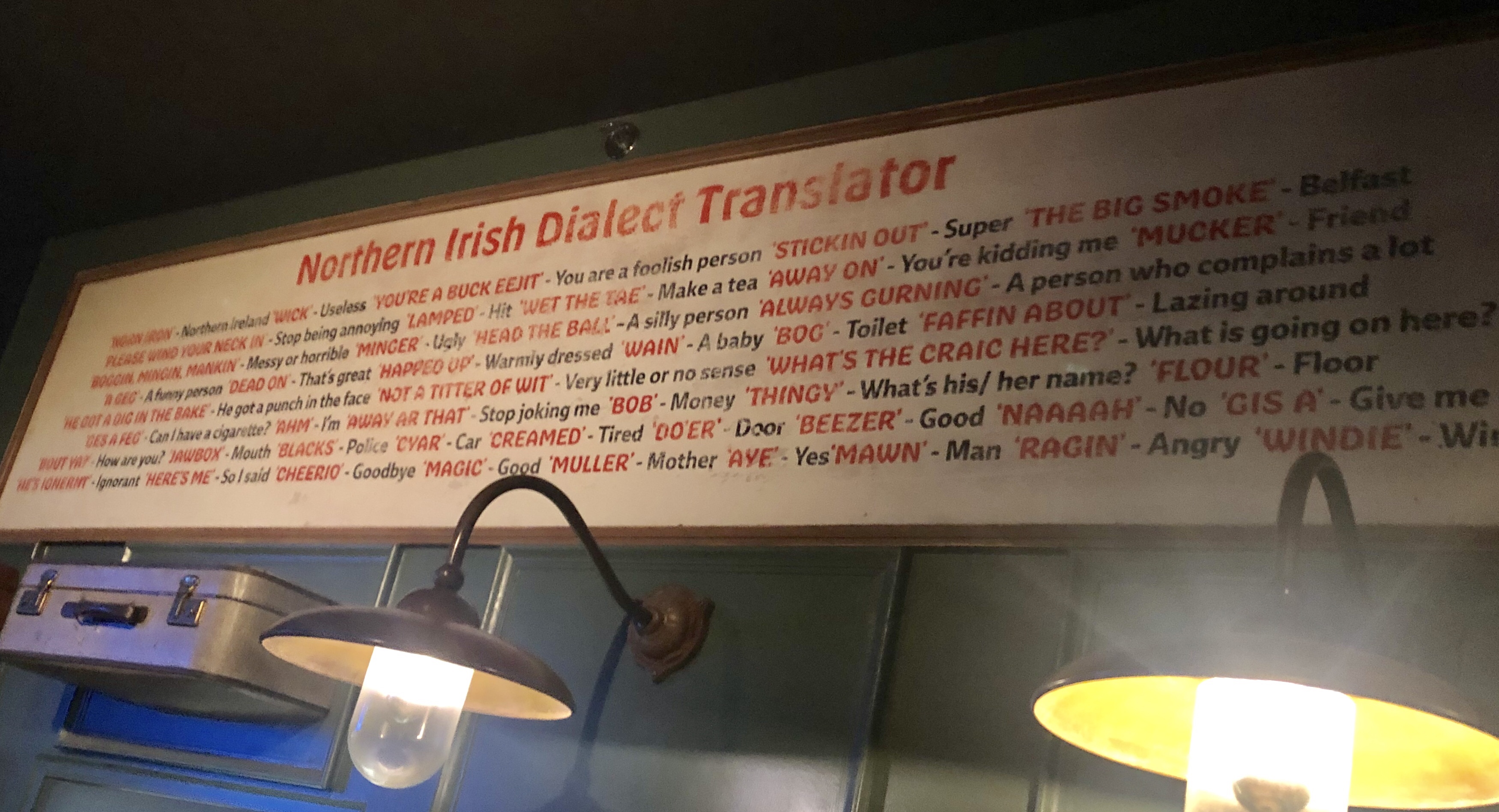
Found at Murphys Pub in Copenhagen.

I hope to be in Ireland soon again. Both in Northern Ireland and ROI.
The European Union will give Ireland some leeway to establish new border arrangements with Northern Ireland in case of a no-deal Brexit, sources in the bloc’s political hub Brussels said.
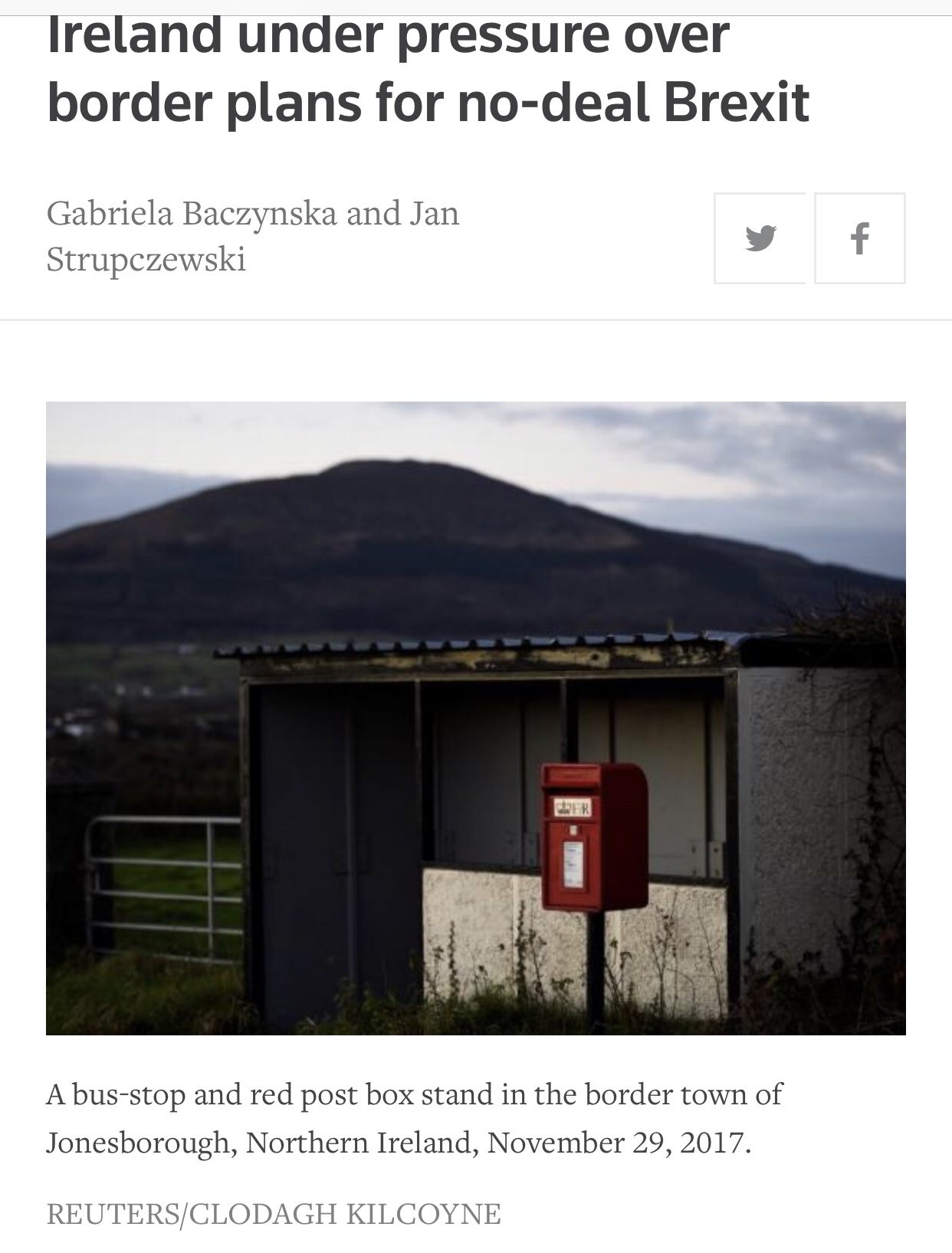
But they said Dublin would soon have to come up with a plan to ensure the integrity of the EU’s single market or face checks on its own goods coming into the rest of the bloc.
“Ireland can get transition periods or some temporary opt-outs on the border in the worst-case scenario,” a senior EU diplomat said.
“But soon enough it will have to face up to the fact that either there is a border on the island or a border between Ireland and the rest of the EU,” the person added.
EU diplomats and officials dealing with Brexit admit it is impossible to set up full border controls overnight as should theoretically be the case if the United Kingdom leaves the bloc without a divorce settlement on March 29.
The issue of a “hard border” on the island of Ireland has hung over Brexit negotiations from the start and is threatening to sink the divorce deal put together over months of painstaking EU-UK talks as the British parliament opposes the Irish “backstop” part of it.
The “backstop” is meant as a last resort, a way to prevent full-blown border controls on goods crossing between EU-state Ireland and the British province of Northern Ireland.
But without a UK-EU free trade deal, yet to be negotiated, that would tie the latter to the bloc’s trade rules – anathema to hardline pro-Brexit supporters in Britain and British Prime Minister Theresa May’s Northern Irish allies who say it would weaken the province’s links with the rest of the country.
Many in Britain, Ireland and the rest of the EU also fear the return of border checks could reignite violence and make checkpoints a target.
To read the entire article, click here: Ireland under pressure over border plans for no-deal Brexit
Source: Reuters






You must be logged in to post a comment.